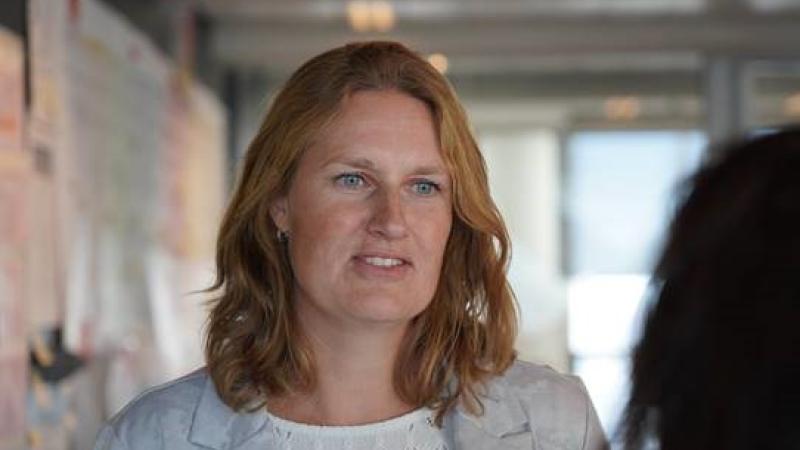‘Being a spokesperson for the IND means yes rather than no’

‘As a spokesperson, I think it’s important to tell the real story about an organisation. I’m not going to paint pretty pictures when reality is glum.’
Honest glimpse
Some days, journalists continuously know where to find her by telephone. On others, she is walking around in Ter Apel. Or she is organising a press lunch. ‘Actually, working for the IND has always been varied and busy,’ says spokesperson Mijke. ‘I do try to plan and organise my days, but in practice things usually turn out differently. That makes sense if you consider the current asylum crisis in the Netherlands. Fortunately, I enjoy it all very much. It feels valuable that I can show an honest glimpse of an organisation that can never do well for everybody in the opinion of the public.’
Strong opinions
By the opinion of the public, Mijke means that many people in the Netherlands have an opinion about migration. ‘It is a highly polarised subject where left and right are diametrically opposite to one another,’ she says. ‘Criticism is often expressed in the media. And on social media people voice strong opinions: about the IND as an organisation and the decisions we make. This is frustrating for our staff. They work very hard day after day and then read things in the media in which they don’t recognise themselves.’
Decisions that do justice
Mijke is happy that she can make a difference for her colleagues in this respect. ‘I have been working at the IND for half a year now and I have come to admire the people who work here very much. They have to take objective decisions each day in a field of work that’s full of emotion. I don’t envy them!’
Telling honestly about work and dilemmas
Still, there is an increasing understanding for the IND. At least, this is what Mijke experiences. ‘It is nice that the IND has set itself the aim to tell as transparently as possible about the work and the own organisation. Unlike before, we now allow journalists to look over our shoulders where possible. We do this because we want to show how beautiful and special our work is. But also to be honest about the dilemmas we encounter. When we receive a request from the media, I always look at the options first. Only then do I look at the obstacles. I’d rather say “yes, unless” than “no, unless.”’
Being open about what is going well and what not so well
Mijke’s most important motive is painting a realistic picture. ‘As a spokesperson, I think it’s very important to tell the real story about an organisation. Also at times when it is not so nice. I’m not going to paint pretty pictures when reality is glum. I’ve also noticed that the IND is getting better at this. We tell what we’re doing well – and also what’s going less well. We explain why things are happening the way they’re happening. And if something does go wrong, we also tell what we want to do better next time.’
Explanation creates understanding
As an example, Mijke mentions the increasing waiting times which the IND is currently dealing with. ‘We received a lot of comments on this in recent weeks. We then explained that delayed migration started to flow after corona measures and travel restrictions had been lifted. That the influx of asylum seekers from Syria remained high. That we had to deal with evacuations from Afghanistan in addition. And that there’s a war in Ukraine now as well. If you give such an explanation, the outside world is much more likely to understand.’
How things really are
Mijke: ‘It’s a challenge to show the full extent of our work. Around 80% of the press questions I receive are about asylum. This whereas only 20% of the applications the IND processes annually are about asylum. We also unite lovers. We allow young people to study in the Netherlands. We make sure that highly skilled migrants can work here. It is important that we explain what we’re responsible for and what not as an implementing organisation. So that people don’t only talk about us, but that we also talk back ourselves. If we communicate openly, everyone in the Netherlands can form their own opinion about the migration issues. Based on how things really are. Not based on hearsay.’